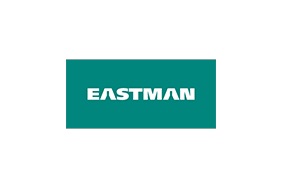Wood Coatings With a Purpose
Eastman sustainable wood coatings solutions provide a leg up in wood furniture marketplace
Published 08-30-24
Submitted by Eastman

In today's competitive and environmentally conscious marketplace, wood furniture makers and coating formulators face numerous challenges, from meeting stringent environmental regulations to standing out with innovative, high-performance products. Eastman wood coating additives offer a solution that addresses these challenges while enhancing both product protection and sustainability. Eastman is committed to creating products that focus on three key impact areas:
- Mitigating climate change
- Mainstreaming circularity
- Caring for society by removing materials of concern (MOC)
These focus areas drive Eastman’s innovation and sustainable solutions, helping customers produce more eco-friendly products while reducing reliance on fossil fuels.
Sustainable solutions with Eastman Solus™ performance additives
Eastman Solus™ performance additives can play a crucial role in formulators and furniture manufacturers achieving their sustainability goals. Biobased Solus™ additives comply with the latest regulations concerning MOC and volatile organic compounds (VOCs). For instance, Solus™ does not includes any MOCs such as nitrocellulose, making the coatings less prone to combustion and safer to handle. Additionally, Solus™ is produced with fewer greenhouse gas emissions compared to other coating additives and holds biodegradable certifications.
Advanced molecular recycling with Solus™ ES
Solus™ ES offers an additional layer of environmental benefits. Manufactured from certified recycled content* through Eastman’s advanced molecular recycling technology, Solus™ ES helps divert materials from the waste stream and repurpose old plastics. This innovative approach results in wood coating additives that contain up to 75% sustainable content, combining biobased materials with recycled content.
Performance and reliability
The sustainability of Solus™ additives does not compromise their performance. Solus™ creates an effective barrier as a carrier base coat or primer, eliminating common surface defects, resisting UV light and salt, and preventing yellowing. It also enhances processing requirements by reducing dry-to-touch handling times and improving flow.
Competitive advantage
By using Solus™, wood furniture manufacturers and coating formulators can gain a competitive edge in the marketplace. Coatings made with Solus™ not only look better but also last longer and stay stronger. These attributes provide users with a significant advantage as they seek innovative solutions that offer both sustainability and superior performance.
Connect with us
Interested in learning more or requesting a product sample? Connect with an Eastman representative today to explore how our wood coating additives can help you achieve your sustainability and performance goals.
*Certified recycled content allocated using ISCC mass balance

Eastman
Eastman
Founded in 1920, Eastman is a global specialty materials company that produces a broad range of products found in items people use every day. With the purpose of enhancing the quality of life in a material way, Eastman works with customers to deliver innovative products and solutions while maintaining a commitment to safety and sustainability. The company’s innovation-driven growth model takes advantage of world-class technology platforms, deep customer engagement, and differentiated application development to grow its leading positions in attractive end markets such as transportation, building and construction, and consumables. As a globally inclusive and diverse company, Eastman employs approximately 14,000 people around the world and serves customers in more than 100 countries. The company had 2023 revenue of approximately $9.2 billion and is headquartered in Kingsport, Tennessee, USA.
About Eastman in the circular economy: In 2019, Eastman became the first company to begin commercial-scale chemical recycling for a broad set of waste plastics that would otherwise be landfilled or, worse, wind up in the environment. Eastman's molecular recycling technologies can process waste plastics traditional mechanical recycling methods cannot—including polyesters, polypropylene, polyethylene, and polystyrene—derived from a variety of sources, including single-use plastics, textiles, and carpet. These technologies provide a true circular solution of endless recycling for materials, allowing them to be reused repeatedly.
To learn more about how we’re working to make a more circular economy visit eastman.eco.
More from Eastman

